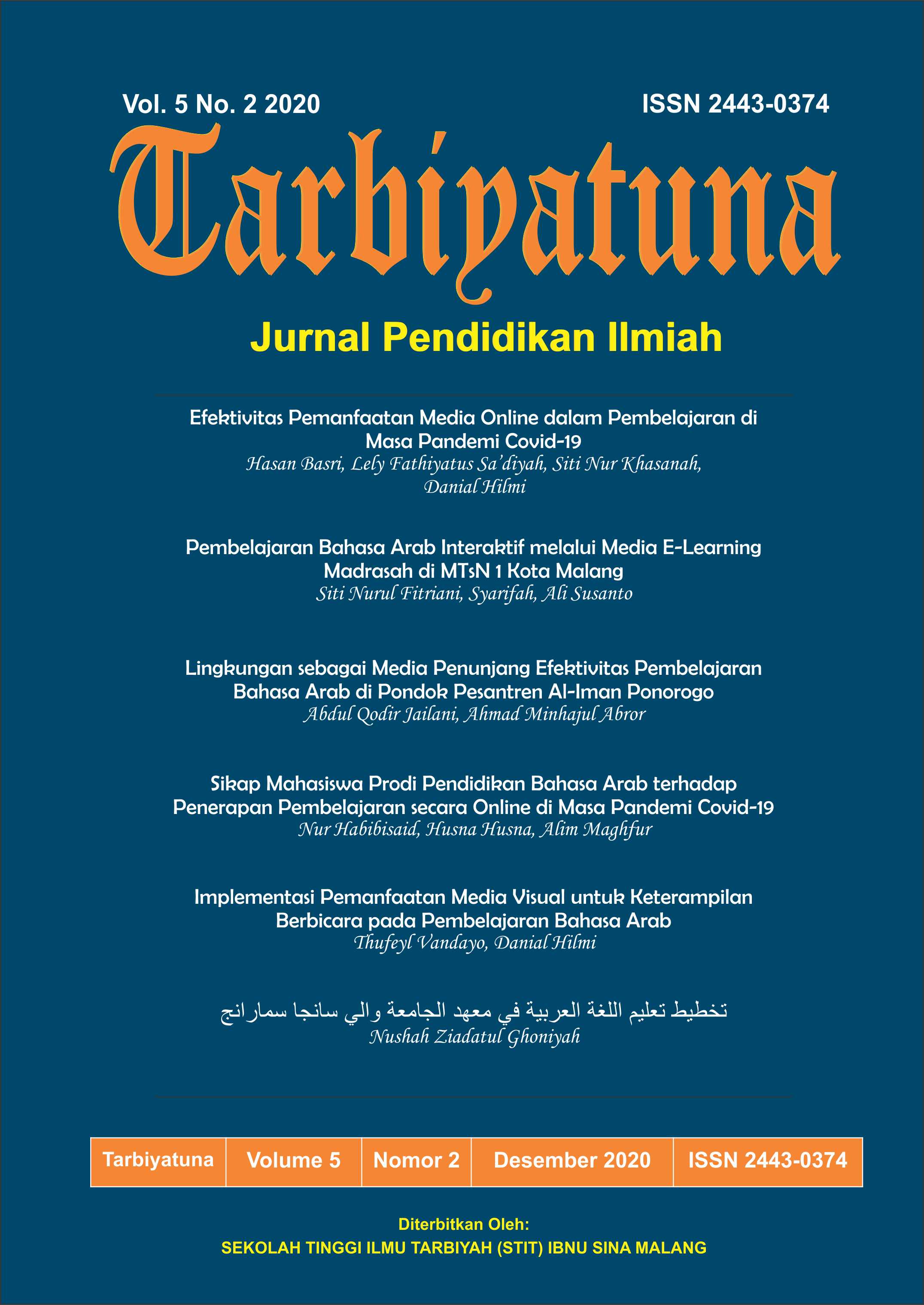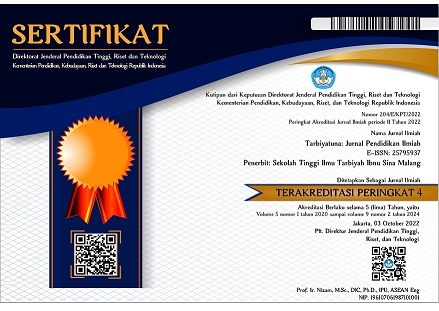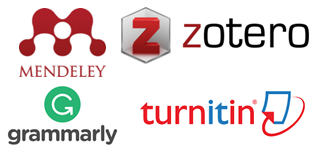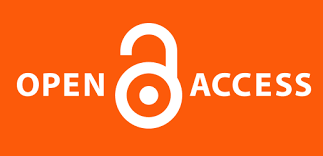Efektivitas Pemanfaatan Media Online dalam Pembelajaran di Masa Pandemi Covid-19
Abstract
This research aims to determine what applications are used by lecturers and students in learning and how it's effectiveness in supporting the learning process. The approach used in this research is qualitative, with data collection through observation, documentation, and interviews. To test the validity of the data, triangulation of sources, data and discussions with peers was used. Data was collected by interview via WhatsApp to ten students of UIN Maulana Malik Ibrahim Malang. The result shows that lecturers and students using apps Zoom Meeting, Google Meet, E-learning and WhatsApp Group to support learning online. Lectures with these media often have problems with the signal or internet network, especially for students who live in areas with poor signal and do not use wifi and that will also have an impact on the quality of learning that students receive. However, this application media is still considered effective by the majority of students, because it has advantages in practicality, saves costs and time, and facilitates communication between lecturers and students.
References
Creswell, John W. Research design pendekatan kualitatif, kuantitatif, dan mixed. Yogyakarta: ustaka Pelajar, 2010.
Fikriyyah, Asiefatul. “Pemanfaatan Aplikasi ‘Comic Page Creator’ sebagai Strategi untuk Menggali Keterampilan Menulis dalam Bahasa Arab.†Prosiding Konfererensi Nasional Bahasa Arab 3, no. 3 (2017): 282–88.
Iswanto, Rahmat. “Pembelajaran Bahasa Arab Dengan Pemanfaatan Teknologi.†Arabiyatuna: Jurnal Bahasa Arab 1, no. 2 (2017): 139–52.
Kurniawan, Asep. “MANAJEMEN KERJASAMA LEMBAGA PENDIDIKAN ISLAM DENGAN MASYARAKAT (Studi Kasus Pondok Pesantren Alam Internasional Saung Balong al-Barokah Cisambeng Palasah Majalengka).†Holistik 15, no. 1 (2016).
Kurniawan, Dayat. Membangun Aplikasi Elektronika dengan Raspberry Pi 2 dan Whatsapp. Jakarta: PT. Elex Media Komputindo, 2016.
Leuwol, Natasya, dan Sherly Gaspersz. “Perubahan Karakter Belajar Mahasiswa Di Tengah Pandemik Covid-19.†Civic-Culture: Jurnal Ilmu Pendidikan PKN dan Sosial Budaya 4, no. 1 Extra (2020): 32–44.
Nurhalimah, Sitti. Media Sosial dan Masyarakat Pesisir: Refleksi Pemikiran Mahasiswa Bidikmisi. Deepublish, 2019.
Rozak, Abd, dan Azkia Muharom Albantani. “Desain perkuliahan bahasa arab melalui google classroom.†Arabiyat: Jurnal Pendidikan Bahasa Arab dan Kebahasaaraban 5, no. 1 (2018): 83–102.
Setiawan, Adib Rifqi, dan Arij Zulfi Mufassaroh. “Lembar Kegiatan Siswa untuk Pembelajaran Jarak Jauh Berdasarkan Literasi Saintifik pada Topik Penyakit Coronavirus 2019 (COVID-19).†Thesiscommons.org., 2020.
Simanihuruk, Lidia, Janner Simarmata, Acai Sudirman, M. Said Hasibuan, Meilani Safitri, Oris Krianto Sulaiman, Rahmi Ramadhani, dan Syafrida Hafni Sahir. E-Learning: Implementasi, Strategi dan Inovasinya. Yayasan Kita Menulis, 2019.
Sugiyono. Metode penelitian pendidikan:(pendekatan kuantitatif, kualitatif dan R & D). Alfabeta, 2008.








.png)

